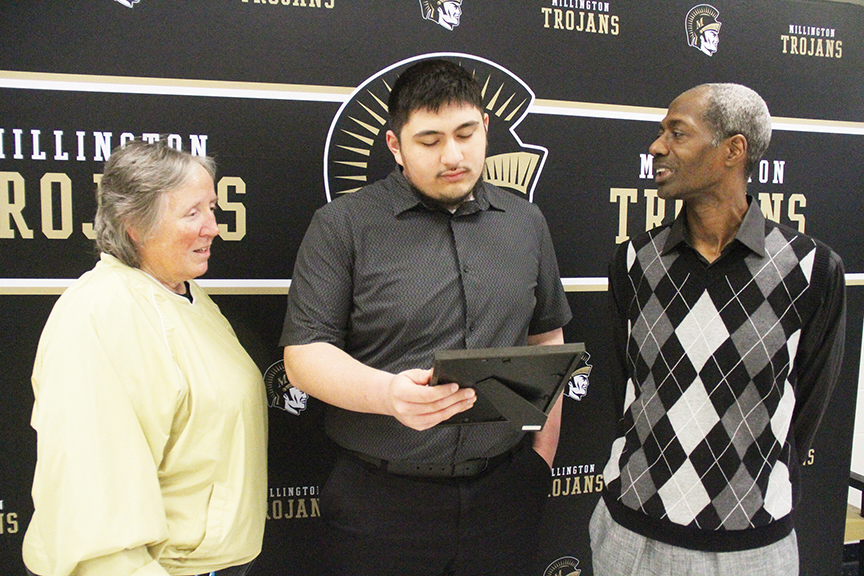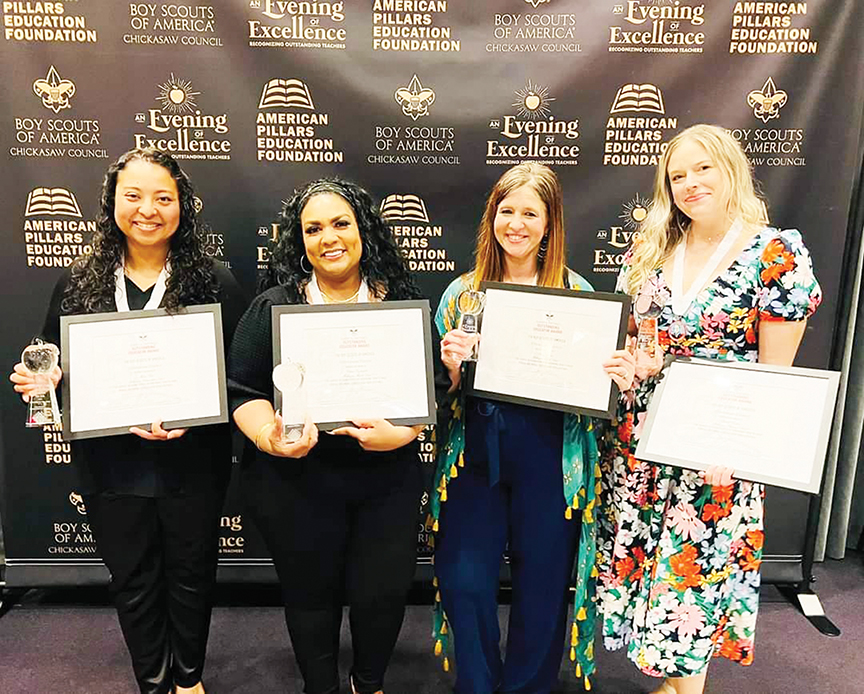
By Terry Hollahan
Jim Brown can’t remember how many machine gun barrels he burned out fighting in one particular battle in the Chosin Reservoir area of North Korea, he just knew he couldn’t pause to let the machine gun rest even momentarily because waves of Chinese soldiers continued to come at him and his fellow Marines.
It was November 1950 and U.N. forces were advancing northward in the Korean War. Brown, an Arlington resident now, was with the 5th Marine Regiment and was fighting with other Marine units and U.N. forces who had advanced to Yudam-ni northwest of the Chosin Reservoir on Nov. 26 that year, three days after Thanksgiving.
The war was presumably near an end, but the Chinese had just entered the Korean conflict and had mobilized 120,000 troops to surround the U.N. forces on both sides of the Chosin Reservoir with orders to annihilate all of them.
On the morning of Nov. 27, 1950, battles in and around the reservoir began that would test the mettle of those soldiers and lead to thousands of casualties.
Bitter cold air from Siberia was flowing southward through the mountainous terrain of North Korea, bringing temperatures of -30 and -40 below zero as Brown and his fellow Marines tried to fend off an enemy that outnumbered them 20-to-1.
The morning of Nov. 27, the surprise attack by Chinese forces left “a mat of human wreckage,” Brown wrote in his account of the Battle of Chosin Reservoir, with more than 200 Marines killed or the equivalent of two Marine companies.
The soldiers prayed together every day, even inspiring Turkish soldiers fighting with them to pray along with them.
“We assumed that these Turkish soldiers now believed in a Higher Power and were practicing what the Marines had shared with them,” Brown wrote in “The Day the Sun Shined.” “As for us Marines, we truly believed that God surely works in mysterious ways.”
The Marines were given orders on Nov. 29 to move southeast toward Hagaru-ri and then to the coastal city of Hamhung to evacuate all the wounded, equipment, and the dead Marines they took with them on the 70-mile journey. Marines leave no Marine behind, he said.
One of their first objectives was to get to Hagaru-ri 20 miles away and relieve a small group of Fox Company Marines who were on an isolated hill and had been battling Chinese forces for six days to keep the Toktong Pass open from Yudam-ni to Hagaru-ri. It was a major supply route for U.N. forces.
Marine Col. William E. “Bill” Barber commanded Fox Company and of his 220 Marines, only 82 were able to walk away when relief arrived. Barber would receive the Medal of Honor.
Brown said while at the Toktong Pass, he heard the story that Barber had been asked how long he could keep the pass open and his response was, “As long as a Marine is standing with rifle.”
All along the way, Chinese forces continued to attack relentlessly, with the only reprieve coming from U.S. air support that would provide rocket fire to keep Chinese forces at bay. Airplanes also would drop more ammunition and supplies.
At one point in the journey, they ran out of ammunition and were waiting for a drop, but the Air Force was not notified that Tootsie Rolls were code for 60-millimeter mortar shells and they dropped the candy, Tootsie Rolls, instead of the ammunition.
“To the Air Force’s credit, they made another run that day and dropped the ammunition,” Brown said.
Ironically, the Marines learned they could keep the Tootsie Rolls close to their bodies or in their mouth and they would thaw enough to be eaten, unlike most of the dropped rations and water that quickly became frozen solid.
It was so cold, he said, that it was very difficult to treat the wounded. Soldiers had to put frozen morphine syrettes in their mouths to thaw them so they could be administered to the wounded.
“The clothing of the wounded could not be cut to get at their wounds because they would freeze to death,” Brown wrote. “Also, the doctors and Navy corpsmen could not dress or change the dressings because they had to work with gloves to keep their hands from freezing. Everything was frozen. We couldn’t use plasma because it wouldn’t go into solution, and the tubes would clog up with particles of ice. Actually, the wounded were better off if we just wrapped them up good and left them alone.”
At another point, the soldiers had to repair a damaged bridge about 10 miles south of Koto-ri so they could continue on their journey. It was snowing so hard “you couldn’t see the person next to you,” Brown said, and that prevented air drops.
“We fell to our knees and started praying. You could hear some Marines pray, ‘God, help us get through this one, and we’ll get out of the next one ourselves,’” he said.
Within seconds of them finishing praying, Brown said a star appeared and cleared an area of the sky above them, and the planes were able to drop the materials necessary to repair the bridge.
“The star stayed there until we finished the bridge,” Brown said, which only took about three hours because so many men were working on it and combat engineers were directing all the work. “We looked like a bunch of ants. We stacked dead Chinese soldiers underneath the pylons to level them.”
When the bridge was repaired, the star faded.
Brown said Col. Ray Murray, commander of the 5th Marine Regiment, stood up and said: “I told you Marines that our God is everywhere, even on this frozen, forsaken land. And now you know it’s true.”
By some historical accounts, the battle of Chosin Reservoir that lasted from Nov. 27 to Dec. 15 resulted in 2,500 killed or missing in action among Allied forces, 5,000 wounded in action, and 7,500 who perished from or incurred severe weather-related injuries. An estimated 40,000 Chinese were killed.
Brown was injured twice, the first time getting shot in the hip while he was manning a machine gun.
One of his jobs was keeping track of how many airplanes the Allied forces had at their disposal and how many were incapacitated. Parts from inoperable planes were retrieved to repair other planes and on one mission to secure parts, Brown was hit with shrapnel in his back from rocket fire.
Brown earned two Purple Hearts for his bravery and several other medals and accolades, including an Ambassador for Peace medal issued by the Republic of Korea with an inscription that reads, “You Will Always Be Our Hero.”
He said more medics and Navy corpsmen earned medals from the Battle at Chosin Reservoir than in any other war.
James M. Brown Jr., who is 92 now, went on to teach in the Memphis City Schools system and retired.
He injured his back earlier this year moving into his new home in Arlington, and continues to get treatment. He remains very active with the Marine Corps League Sgt. Walter K. Singleton Detachment 476.
And he is one of the elite members of The Chosin Few fraternity of Marines who fought and survived at the Battle of Chosin Reservoir.



